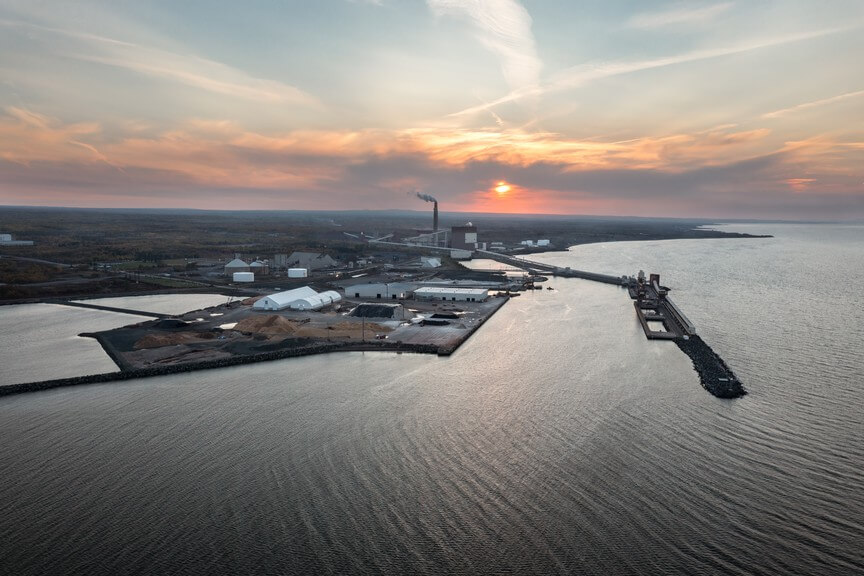Co-operate to save jobs at Belledune
Claude Richard | Commentary
As Published in the the Times Transcript, Telegraph Journal, & Daily Gleaner – December 23, 2021

It is unfortunate the federal government has rejected what we saw as a
reasonable and responsible proposal to keep the Belledune Generating
Station operating past 2030. But since that is the decision, it is not without
opportunity.
The equivalency plan NB Power proposed would not have increased the
amount of carbon which Belledune emitted: It would have simply released
the same amount over a longer period of time. So, while the federal
government’s decision to reject that proposal may look more
environmentally responsible, in reality that’s not the case.
We understand that optics matter and the federal government wants to be
seen both here at home and globally as doing its part in meeting the
challenge of climate change. We agree. It is why we have been supportive
of NB Power’s initiatives over the years to lessen its carbon footprint. We
are proud NB Power was ahead of the curve when it installed scrubbers on
smokestacks to reduce emissions, developed incentives to reduce energy
consumption, and in more recent years embraced green energy
alternatives such as wind turbines and solar farms.
While these efforts continue, the core responsibility of NB Power remains
an uninterrupted supply of electricity at as reasonable a cost to
consumers as possible. That brings us back to Belledune.
For political purposes the decision has been made for Belledune to stop
burning coal. But of course, there are consequences which come from
that decision. They include job insecurity for hundreds of our members
and others, a serious economic hit for an area of the province that is
already struggling, and double-digit rate increases.
How do we mitigate these consequences? As serious as climate change is,
we still aren’t ready to give up a steady supply of heat in winter and air
conditioning in summer, and for that we need to replace or maintain
Belledune’s output.
What is needed is a better level of teamwork between the Higgs and
Trudeau governments. Initial responses are not encouraging, as they
seem more knee-jerk than co-operative. On one hand, we have the Higgs
government sending off a letter that seems to say, “OK, if you won’t let us
keep Belledune operating, then give us $5 billion to upgrade transmission
lines, so the province can connect to replacement power from
Newfoundland’s Muskrat Falls and Quebec.” This amount includes a
related request from Nova Scotia.
And the federal government’s immediate response: “No, no cheque for
you”.
In these initial responses we see shades of the ongoing tensions between
the Higgs and Trudeau governments. Behind the bravado and
gamesmanship though, there does seem to be agreement that the socalled
Atlantic loop transmission line is a project worth discussing. So
hopefully, once both sides get past their public posturing, some serious
negotiations will take place that consider how to make the Atlantic Loop a
reality.
But this project alone would not be enough to replace the current output
of Belledune. We are calling on both levels of government to include other
low-carbon energy alternatives in their negotiations, with strong
consideration for small modular reactors (SMRs) and a hydrogen
production facility.
There is an opportunity here to be in the forefront of green energy
innovation. A recent study by the Nova Scotia Offshore Energy Research
Association noted the Atlantic region is well suited for hydrogen
production, especially if it makes use of existing infrastructure like the
Belledune Generating Station and Port of Belledune. Building these
facilities at Belledune would line up with the federal government’s SMR
road map, and its recently announced hydrogen strategy for Canada.
It would also make use of the highly skilled workforce that would
otherwise be lost when the Belledune plant closes.
and NB Power to collaborate in a way that meets three
The first steps though, are a commitment from both levels of government
criteria: A responsibility to the workforce, to the Chaleur region, and to
ratepayers who need reliable power at an affordable price.
The union stands ready to work with those willing to achieve these goals.
Claude Richard was the business manager of the International
Brotherhood of Electrical Workers Local 37, which includes NB Power
employees.